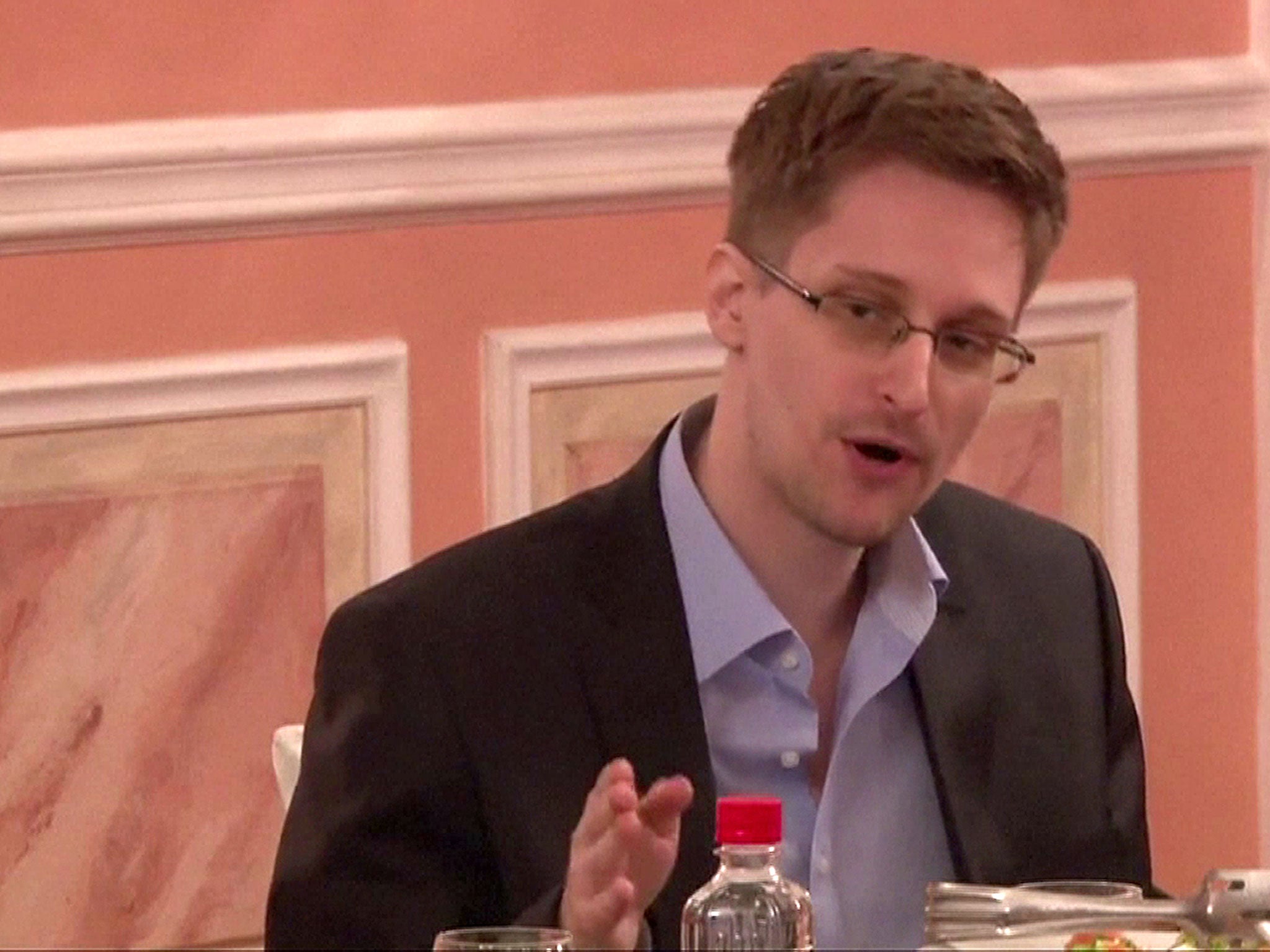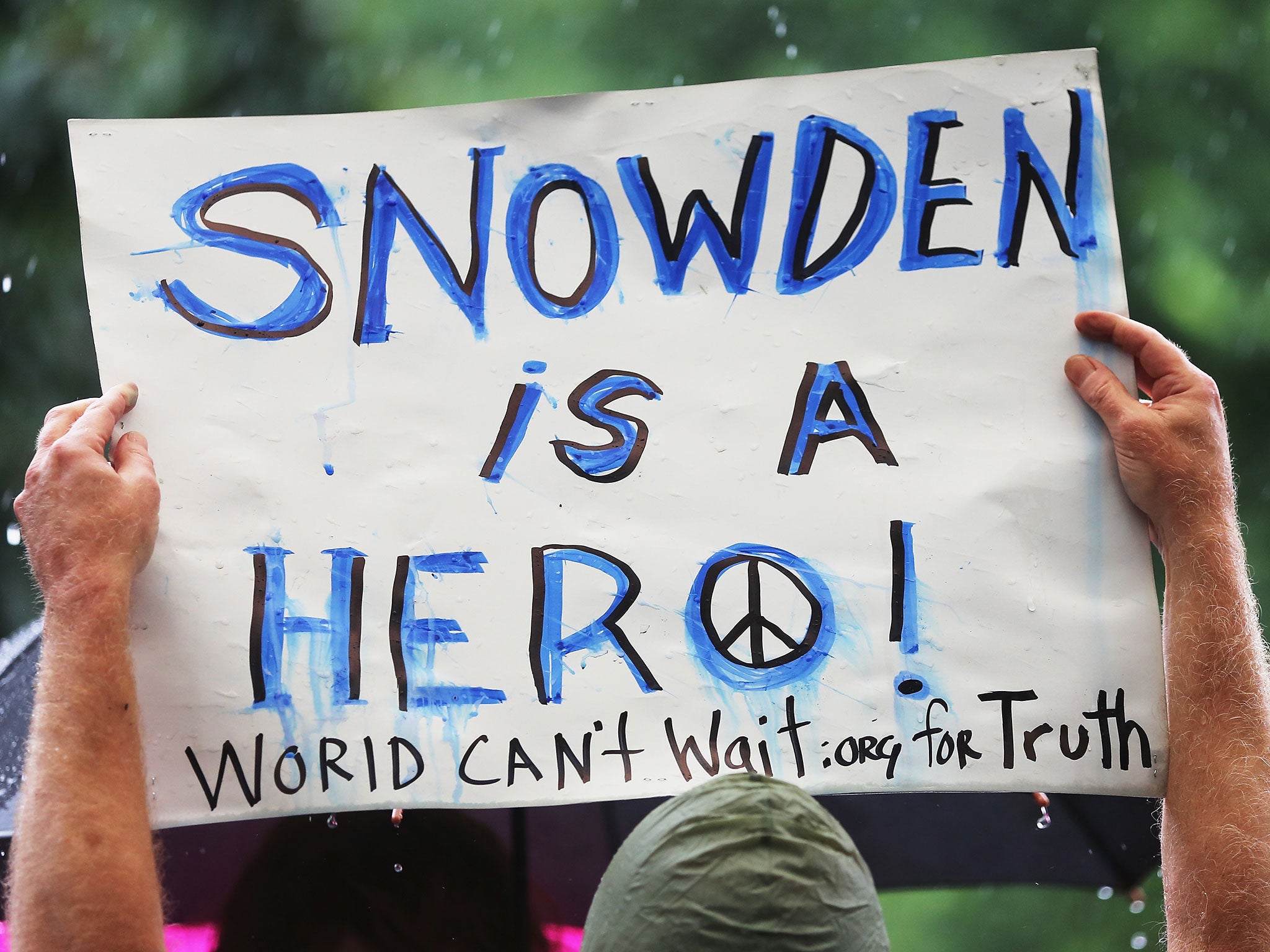Edward Snowden: Becoming an 'international fugitive' was worth it, claims NSA whistleblower
American says bringing the activities of global spy agencies to the public's attention has 'been a great experience' that he is 'actually quite grateful for'

Your support helps us to tell the story
From reproductive rights to climate change to Big Tech, The Independent is on the ground when the story is developing. Whether it's investigating the financials of Elon Musk's pro-Trump PAC or producing our latest documentary, 'The A Word', which shines a light on the American women fighting for reproductive rights, we know how important it is to parse out the facts from the messaging.
At such a critical moment in US history, we need reporters on the ground. Your donation allows us to keep sending journalists to speak to both sides of the story.
The Independent is trusted by Americans across the entire political spectrum. And unlike many other quality news outlets, we choose not to lock Americans out of our reporting and analysis with paywalls. We believe quality journalism should be available to everyone, paid for by those who can afford it.
Your support makes all the difference.Becoming an “international fugitive” was worth it because of the benefits it brought to the public, according to US whistleblower Edward Snowden.
The former National Security Agency (NSA) worker said progress had been made since he released thousands of documents about global surveillance records two years ago.
“The difference is that you get a different quality of government when they are accountable to the public,” he said on video live-link from Moscow to an event in London organised by human rights group Amnesty International.
Within hours the American Senate passed a USA Freedom Act that would end the bulk collection of millions of Americans’ phone records.
However, he accused the British government of trying to reform surveillance laws in a negative way.
“Rather than preserving civil liberties, they are trying to limit it,” he said.
Although he can “no longer see my family” or live in the US, Snowden said “the things I've received personally and we've all benefited from publicly, make it all worth it.”
“It has been incredibly rewarding, incredibly gratifying,” he added, pointing out that newspapers around the world have published stories about government abuses and courts had acted to stop them.

“I think the most liberating thing about burning your life to the ground, and becoming an international fugitive, or so I'm told, is that you no longer have to worry about tomorrow, you think about today,” he said. For me that's been a great experience, I'm actually quite grateful for it.
Unable to answer where he saw himself in five years he added: “I've applied for asylum in 21 different countries, including western Europe, I'm still waiting for them to get back to me.”
Working as a contractor for the NSA in Hawaii, Snowden became uncomfortable with the level of intrusion the agency and its foreign counterparts, including Britain's GCHQ, were making into the lives of innocent civilians.
After raising the alarm with his superiors he decided to blow the whistle and stole tens of thousands of classified files, before fleeing to Hong Kong in June 2013.
There, he helped to co-ordinate a series of articles that exposed mass surveillance programmes such as the NSA's Prism and GCHQ's Tempora, which involve “hoovering up” vast volumes of private communications.
Film-maker Laura Poitras made the Citizenfour documentary about the revelations.
Once Snowden's identity was out, he fled to Russia, where he remains wanted by the US authorities.
Surveillance methods being used around the world gave government a window into “anybody's life at any given time,” he said, asking: “Do we really want the Government watching everybody all the time?”
They had it had been proved not to work, he added, saying that despite surveillance, the Boston Marathon bombing still took place.
Join our commenting forum
Join thought-provoking conversations, follow other Independent readers and see their replies
Comments